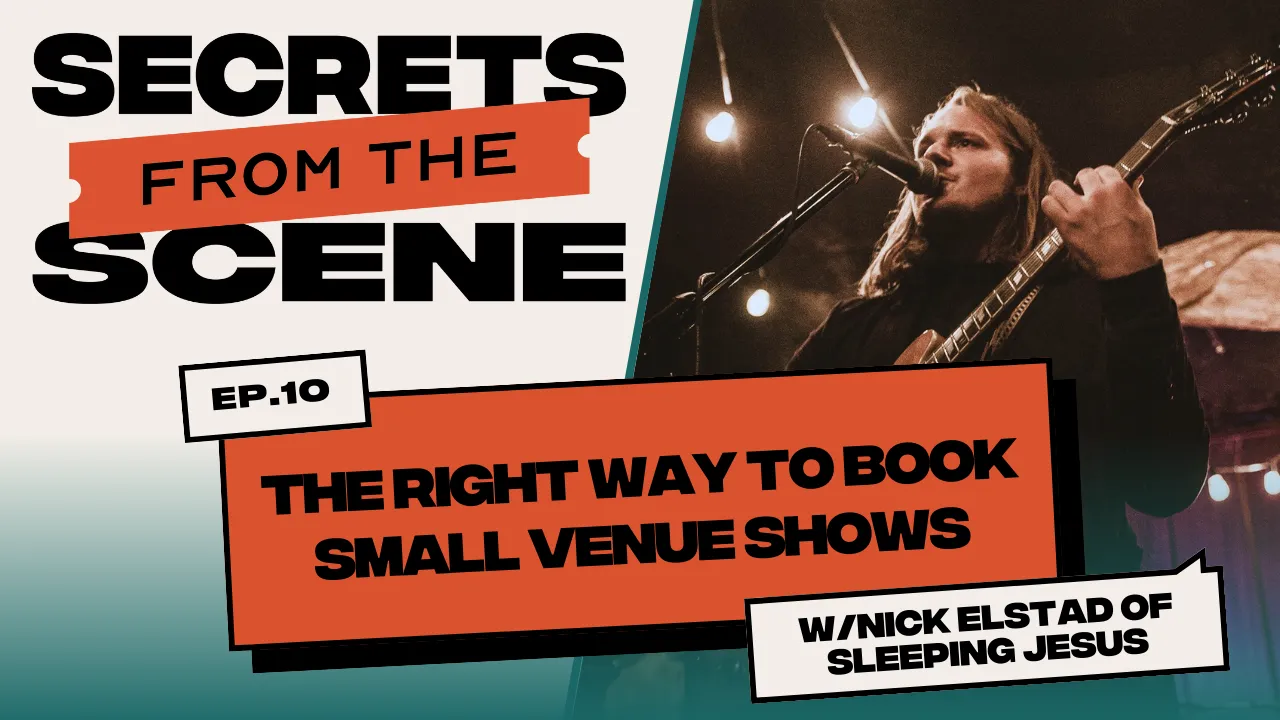Show Notes
The episode features Nick Elstad, the lead singer and guitarist of the band Sleeping Jesus and his solo project Sweet and Lonely. Nick is the booking agent for No Name Bar in Winona, MN and shares tips on how artists can approach booking, suggesting important factors like a short but concise emails, providing the dates you want in the first email, linking music and social media platforms, and providing possible partnering bands for the show.
Besides sharing his booking expertise, Nick walks us through the background of Sleeping Jesus, their new album, doing social media, setting up a home studio, and more.
watch now on YouTube:
Connect with the Guest
Featured Song
Connect with Me
Give Feedback
📬 Send me a message: stephen@secretsfromthescene.com
💬 Suggest a guest or topic: podcast@secretsfromthescene.com
🎙️ Brought to you by:
--------------------------------
Thank You
This podcast is made possible by the hard work, expertise, and commitment of my team:
Max Greene and Joey Biehn. I'm forever grateful.
--------------------------------
Theme Music: "Thankful" Courtesy of LUEDVIG

